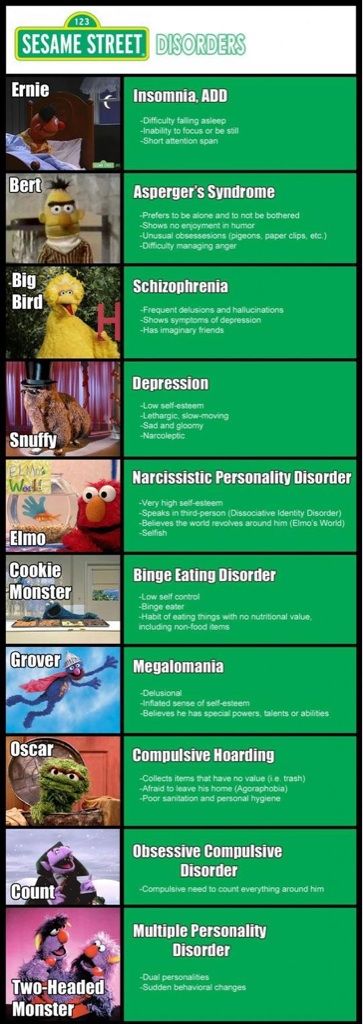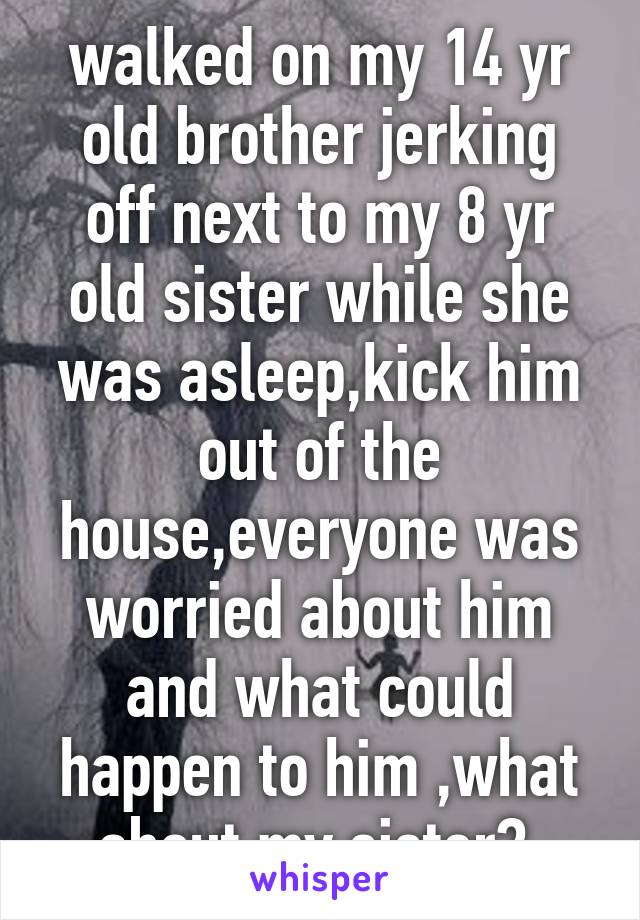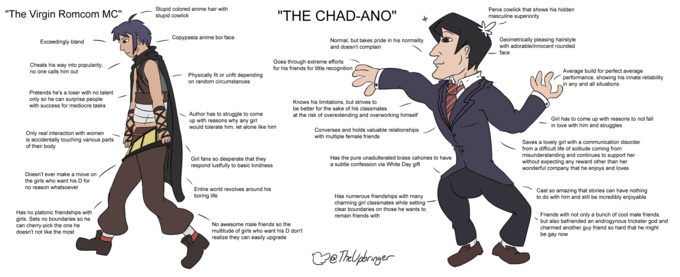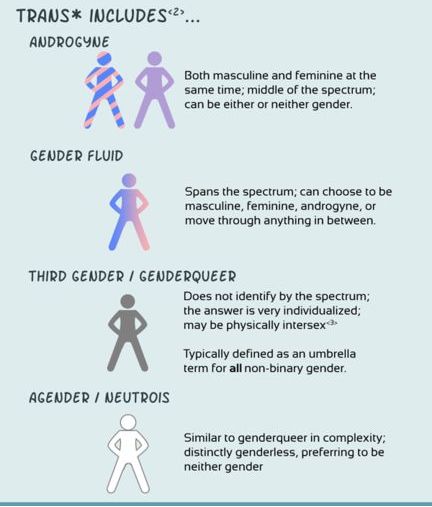Self test for aspergers
Online Test for Adult Autism
Share this page
Question 1
I prefer to do things on my own, rather than with others.
- Definitely Agree
- Slightly Agree
- Slightly disagree
- Definitely disagree
Question 2
I prefer doing things the same way - for instance my morning routine or trip to the supermarket
- Definitely Agree
- Slightly Agree
- Slightly disagree
- Definitely disagree
Question 3
I find myself becoming strongly absorbed in something – even obsessional
- Definitely Agree
- Slightly Agree
- Slightly disagree
- Definitely disagree
Question 4
I am very sensitive to noise and will wear earplugs or cover my ears in certain situations
- Definitely Agree
- Slightly Agree
- Slightly disagree
- Definitely disagree
Question 5
Sometimes people say I am being rude, even though I think I am being polite.
- Definitely Agree
- Slightly Agree
- Slightly disagree
- Definitely disagree
Question 6
I find it easy to imagine what characters from a book might look like.
- Definitely Agree
- Slightly Agree
- Slightly disagree
- Definitely disagree
Question 7
I find it easy to talk in groups of people
- Definitely Agree
- Slightly Agree
- Slightly disagree
- Definitely disagree
Question 8
I am more interested in finding out about ‘things’ than people
- Definitely Agree
- Slightly Agree
- Slightly disagree
- Definitely disagree
Question 9
I find numbers, dates and strings of information fascinating
- Definitely Agree
- Slightly Agree
- Slightly disagree
- Definitely disagree
Question 10
I prefer non-fiction books and films to fiction
- Definitely Agree
- Slightly Agree
- Slightly disagree
- Definitely disagree
Question 11
I find it upsetting if my daily routine is upset or changed
- Definitely Agree
- Slightly Agree
- Slightly disagree
- Definitely disagree
Question 12
It’s difficult for me to understand other people’s facial expression and body language
- Definitely Agree
- Slightly Agree
- Slightly disagree
- Definitely disagree
Question 13
I don’t have any problems making small talk with new people
- Definitely Agree
- Slightly Agree
- Slightly disagree
- Definitely disagree
Question 14
I notice very small changes in a person’s appearance
- Definitely Agree
- Slightly Agree
- Slightly disagree
- Definitely disagree
Question 15
When I was young I used to play lots of ‘let’s pretend’ or imaginary games
- Definitely Agree
- Slightly Agree
- Slightly disagree
- Definitely disagree
Question 16
I like collecting information about things I am interested in
- Definitely Agree
- Slightly Agree
- Slightly disagree
- Definitely disagree
Question 17
I like meeting new people
- Definitely Agree
- Slightly Agree
- Slightly disagree
- Definitely disagree
Question 18
People close to me say I talk about the same things repeatedly
- Definitely Agree
- Slightly Agree
- Slightly disagree
- Definitely disagree
Question 19
I find it easy to work out what people are thinking or feeling just by looking at their facial expressions
- Definitely Agree
- Slightly Agree
- Slightly disagree
- Definitely disagree
Question 20
New social situations make me feel anxious
- Definitely Agree
- Slightly Agree
- Slightly disagree
- Definitely disagree
Question 21
It’s important to me to carefully plan any activities I am going to do
- Definitely Agree
- Slightly Agree
- Slightly disagree
- Definitely disagree
Question 22
I find it hard to work out what people’s intentions are
- Definitely Agree
- Slightly Agree
- Slightly disagree
- Definitely disagree
Question 23
I would find it really hard to play imaginary games with children
- Definitely Agree
- Slightly Agree
- Slightly disagree
- Definitely disagree
Question 24
I am a good diplomat and can help ease difficult social or work situations
- Definitely Agree
- Slightly Agree
- Slightly disagree
- Definitely disagree
Question 25
I am often the last person to understand a joke
- Definitely Agree
- Slightly Agree
- Slightly disagree
- Definitely disagree
Question 26
I like doing things spontaneously
- Definitely Agree
- Slightly Agree
- Slightly disagree
- Definitely disagree
Question 27
If I am interrupted doing something I find it hard to get back to what I was doing before hand
- Definitely Agree
- Slightly Agree
- Slightly disagree
- Definitely disagree
Question 28
I notice patterns in things all the time
- Definitely Agree
- Slightly Agree
- Slightly disagree
- Definitely disagree
Question 29
I have some very strong interests and get upset if I can’t pursue them
- Definitely Agree
- Slightly Agree
- Slightly disagree
- Definitely disagree
Question 30
I can tell if someone I am talking to is getting bored
- Definitely Agree
- Slightly Agree
- Slightly disagree
- Definitely disagree
Question 1 of 30
When answering the above questions please consider how much the statements apply to you.
The above 30 questions may be useful to understand if you are experiencing some of the common behaviours and thoughts associated with being on the Autistic Spectrum. The questions are based on an evidence-based screening tool – the Autism Spectrum Quotient – but are indicative only and do not form a formal diagnosis.
References: S. Baron-Cohen, S. Wheelwright, R. Skinner, J. Martin and E. Clubley, (2001) The Autism Spectrum Quotient (AQ) : Evidence from Asperger Syndrome/High Functioning Autism, Males and Females, Scientists and Mathematicians Journal of Autism and Developmental Disorders 31:5-17
Need to talk?
0203 326 9160 0203 326 9160
A free, confidential call could quickly help you get the support you need. Your call will be answered by an assistant psychologist who will listen to your concerns before explaining your options and suggesting the most appropriate treatment.
Take another test
View all tests
We have online mental health quizzes for many conditions including ADHD, autism, anxiety, depression, PTSD, and more.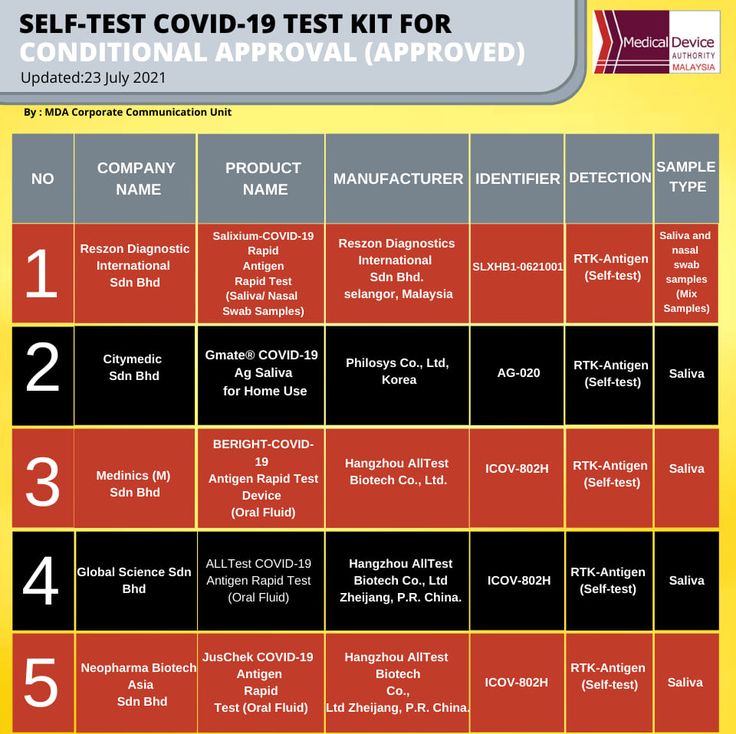 Each one should take no longer than five minutes.
Each one should take no longer than five minutes.
Do I Have Symptoms of ASD or Aspergers?
Do I Have ASD? Autism Test for Adults
Awareness of autism spectrum disorder (ASD) has grown dramatically in recent years, which reflects an increase in autism tests and diagnoses — and in the public’s understanding that, even late in life, an autism diagnosis can offer major benefits and relief. Still, symptoms of autism — particularly those previously associated with Aspergers — are still frequently misdiagnosed as attention deficit hyperactivity disorder (ADHD), mood disorders, obsessive compulsive disorder (OCD), and other related conditions — leading to poor treatment and lifelong challenges.
Adults with autism may have a history of delayed language language and/or movement skills, delayed cognitive or learning skills, unusual eating or sleeping habits, emotional dysregulation, anxiety, stress, and/or fear. If you recognize yourself or a loved one in the following descriptions of autism spectrum disorder, make an appointment with a health care professional to discuss an evaluation test for autism.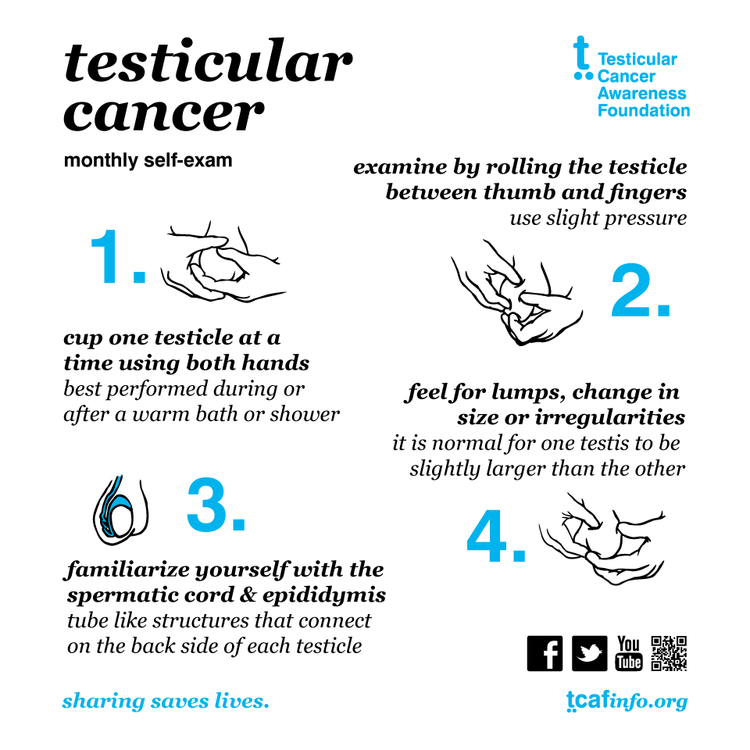
This free autism test was adapted from the Autism Spectrum Screening Questionnaire (ASSQ) designed to screen the possibility of ASD, and is for personal use only. This is not a diagnostic tool. An accurate diagnosis can only be made through clinical evaluation. This autism test is for personal use only.
Even when you’re in a quiet place, like the library, do you find yourself making involuntary noises, like clearing your throat over and over?
Very Often
Often
Sometimes
Rarely
Never
Did bullies target you in grade school?
Very Often
Often
Sometimes
Rarely
Never
Do your family members lovingly refer to you as the “eccentric professor” of the family?
Very Often
Often
Sometimes
Rarely
Never
Are you always bumping into things, or tripping over your own feet?
Very Often
Often
Sometimes
Rarely
Never
When you’re having a conversation with someone, do you prefer to look at the wall, their shoes, or anywhere but directly into their eyes?
Very Often
Often
Sometimes
Rarely
Never
Is your memory like a steel trap, even for facts that you don’t fully understand?
Very Often
Often
Sometimes
Rarely
Never
Do you talk to friends at a party the same way you would talk to co-workers in the office?
Very Often
Often
Sometimes
Rarely
Never
Do you have trouble understanding what people mean when they say they feel embarrassed for someone else?
Very Often
Often
Sometimes
Rarely
Never
Do you prefer to read non-fiction over fiction books?
Very Often
Often
Sometimes
Rarely
Never
Think about your daily routine.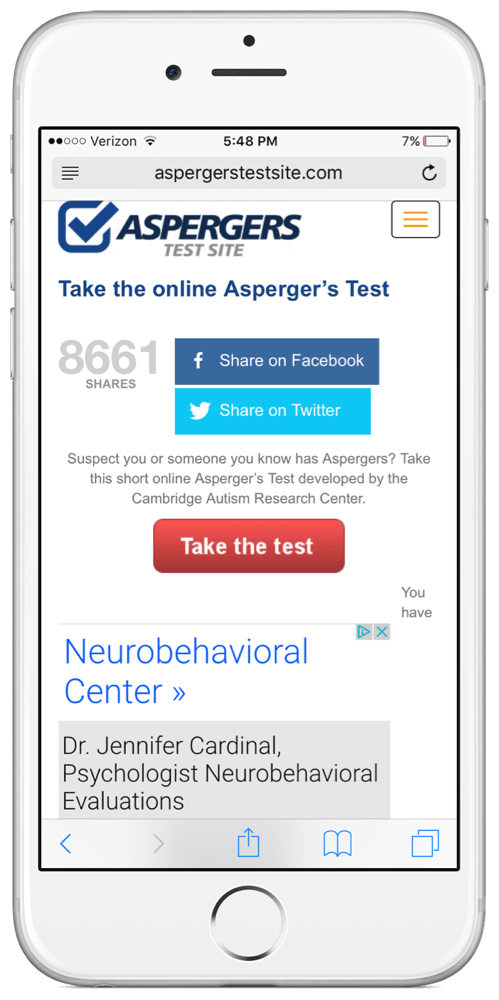 Would you say you follow the same schedule every day of the week, and don’t like unexpected events?
Would you say you follow the same schedule every day of the week, and don’t like unexpected events?
Very Often
Often
Sometimes
Rarely
Never
Have you always wanted a best friend, but never found one?
Very Often
Often
Sometimes
Rarely
Never
Are you always the first one to notice when a friend has gotten a haircut or made a small change to their appearance?
Very Often
Often
Sometimes
Rarely
Never
Do you prefer to play individual games and sports like golf, where everyone works for themselves, instead of team sports and games where everyone works toward a common goal?
Very Often
Often
Sometimes
Rarely
Never
Do you enjoy inventing your own words and expressions that might seem quirky to others?
Very Often
Often
Sometimes
Rarely
Never
Do people say that you speak like a robot?
Very Often
Often
Sometimes
Rarely
Never
Are expressions like “Curiosity killed the cat” or “Don’t count your chickens before they hatch” odd to you?
Very Often
Often
Sometimes
Rarely
Never
Are you really (really) good at a skill like math or music, but struggle to succeed in other areas?
Very Often
Often
Sometimes
Rarely
Never
(Optional) Would you like to receive your autism symptom test results — plus more helpful resources — via email from ADDitude?
Sign me up for your Adult ADHD newsletter.
Can’t see the autism test questions above? Click here to open this test in a new window.
Autism Test Next Steps: Autism Spectrum Disorder In Adults
1. Take: The ADHD Test for Adults
2. Read: What Does Autism Look Like in Adults?
3. Find: Specialists or Clinics Near You
4. Read: How to Get Evaluated for Autism as an Adult
5. Take This Test: OCD in Adults
6. Get the eBook “The Truth About Autism in Adults”
7. Listen to the Webinar: “Could I Be on the Autism Spectrum?”
8. Take This Test The Autism Test from WebMD
9. Read: Say Goodbye to Aspergers Syndrome
10. Find: Specialists or Clinics Near You
Previous Article Next Article
Self-diagnosis of Asperger's syndrome: before, during, after
Asperger's syndrome is a neurological condition that affects a person's development, his daily life and behavior.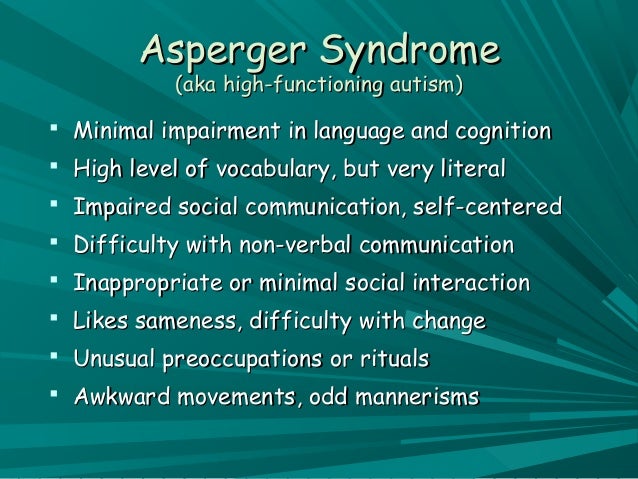
According to the Diagnostic and Statistical Manual of Mental Disorders (DSM-5), Asperger's syndrome is an autism spectrum disorder (associated with level 1). "International Classification of Diseases" (ICD-10) defines it as an independent diagnosis F84.5 of the class "General disorders of psychological development".
Historically, there is no diagnosis of Asperger's syndrome and autism in adults in Russia. Therefore, people are forced to resort to self-diagnosis in an attempt to understand their condition and shape their future life, taking into account their own characteristics.
1. Prerequisites for self-diagnosis of Asperger's Syndrome
1.1 Establishing and maintaining interaction in educational and work teams is accompanied by difficulties and sometimes failures.
1.2 Stress in case of changes or changes in the usual schedule, the need for predictability and stability.
1.3 Repeated references by others to atypical use of the non-verbal component of communication.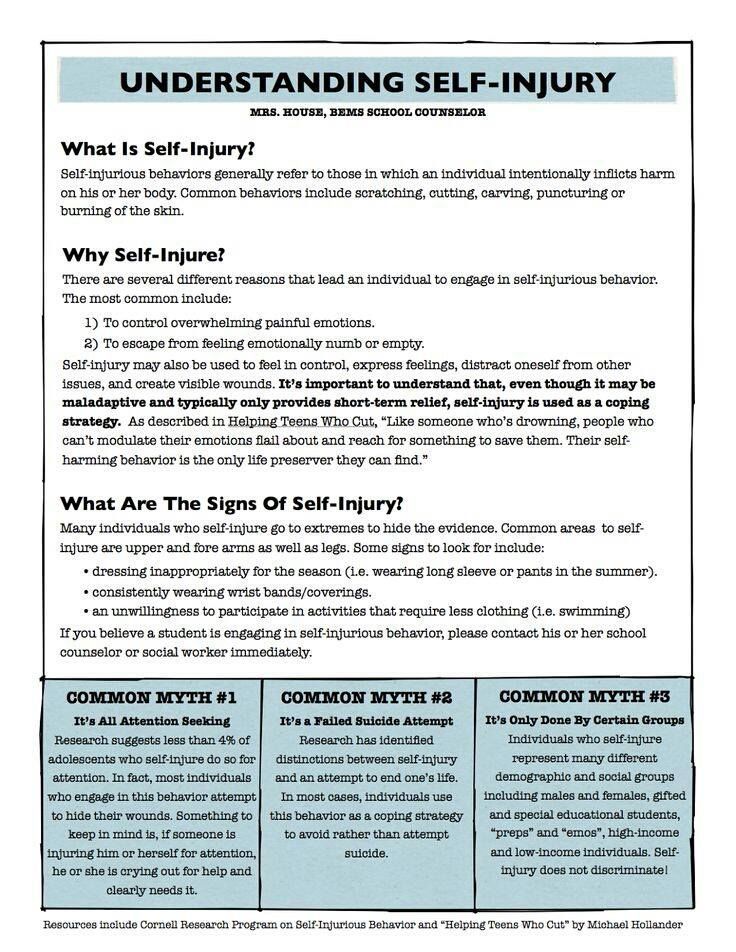
1.4 Regular remarks of others about inadequate response to events, situations.
1.5 Repeated remarks by others about the atypicality of sensorimotor processes.
2. Recognizing the symptoms of Asperger's Syndrome
2.1 Atypical eye contact: tendency to avoid "eye-to-eye" gaze, directing gaze when communicating to the side or at the lips of the interlocutor, sometimes unnatural "staring" look.
2.2 Peculiar prosody: monotony, disturbed melody of speech, too loud or soft voice, poor intonation.
2.3 Body language is little used: atypical gesticulation or its absence, occasional use of nods or shrug as an accompaniment to speech, postures not aimed at expressing attitude to what is happening.
2.4 Motor skills are complicated: clumsiness, coordination difficulties, fine motor skills.
2.5 Expressing one's own emotions and understanding the emotions of others is often difficult, which in some cases is associated with alexithymia.
2.6 Selective dumbness (mutism): speech disappears under the influence of adverse external factors, due to stress, overload, anxiety.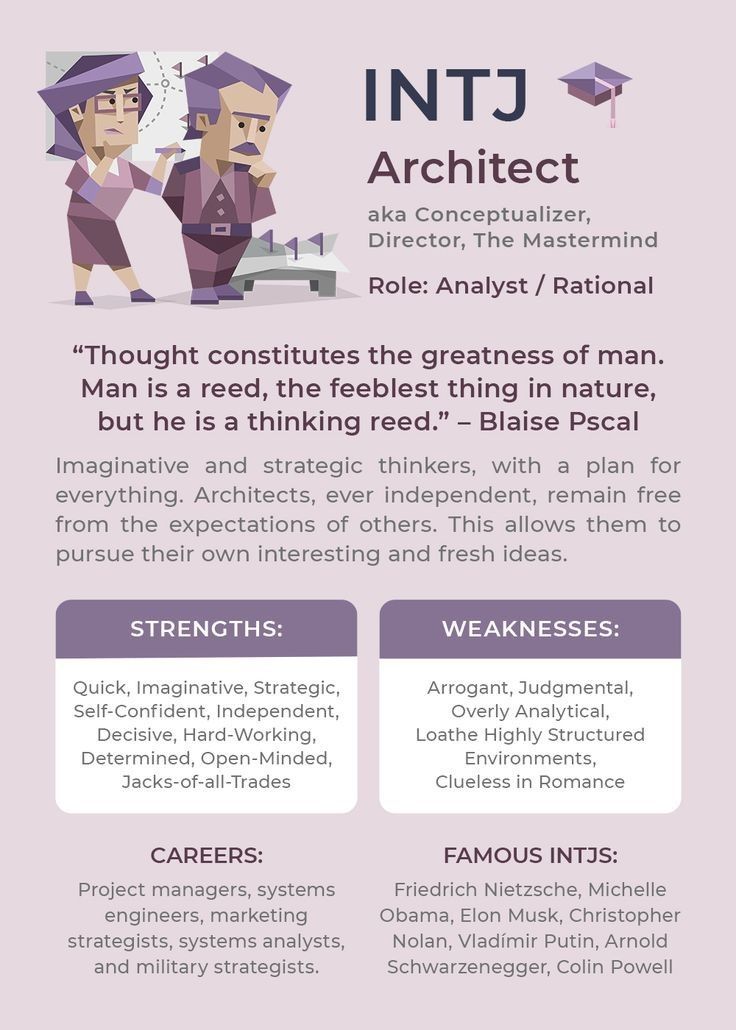
2.7 Monologue in communications: tendency to present the topic without taking into account the reaction of others, ignoring remarks from outside, lack of pauses for feedback.
2.8 Sustained interest in a topic that is obsessive in nature: Fixation on a topic without considering its usefulness can last from several weeks to several years.
2.9 Behavioral rigidity: adherence to routine, schedule, routine, stress if necessary to change them.
2.10 Literal understanding: poor understanding of figurativeness and metaphors, allusions and jokes, rare use in one's own speech.
2.11 Focus on details: reasoning is deductive (from particular to general), induction is rarely used (from general to particular), understanding of the big picture is difficult, difficulty in distinguishing between the main and the secondary.
2.12 The executive function can be impaired: difficulties with setting priorities, organizing time.
2.13 "Model of the mental", empathy: the ability to "imagine yourself in the place of another person" is impaired, empathy is understood logically, non-verbal signals from interlocutors are perceived poorly and often erroneously.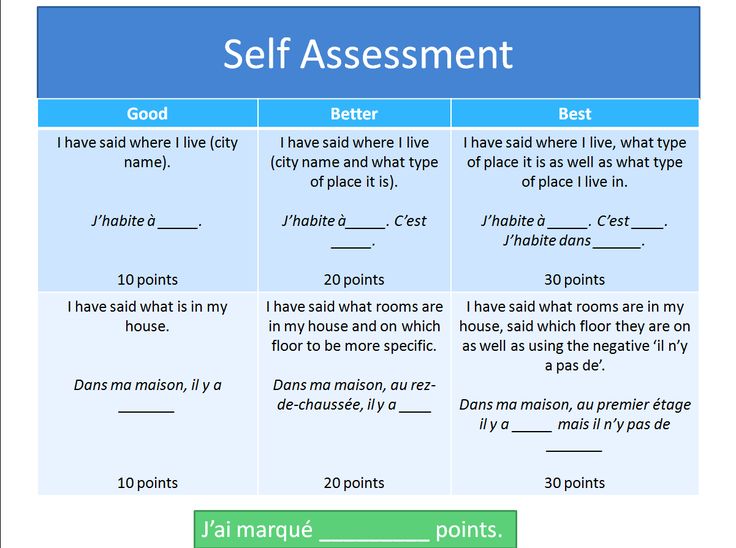
2.14 Systematization, classification and logical approach to creating connections: rejection of illogical norms and traditions of society, conversations "about nothing", forms of greeting and farewell, stereotypes.
2.15 Processing of sensory information is disturbed: hypo- or hypersensitivity in all sense organs (sounds, light, textures and consistencies, temperature).
2.16 Stereotypical movements (stimming) as a reaction to overload and overfatigue: walking back and forth, rocking the body, shaking fingers, legs.
3. Sources of confirmation of the presence of Asperger's syndrome
3.1 Maintaining a list of symptoms, distinguishing from manifestations of OCD, ADHD, depression, anxiety disorder.
3.2 Self diagnostic tests: AQ, RAADS_R, EQ, TAS, ASSQ.
3.3 Diagnostic criteria for Asperger's syndrome and ASD according to DSM-IV, DSM-V, ICD-10.
3.4 Communities of people with Asperger's syndrome and ASD on the Internet: forums, groups, websites, personal blogs, self-diagnosis stories.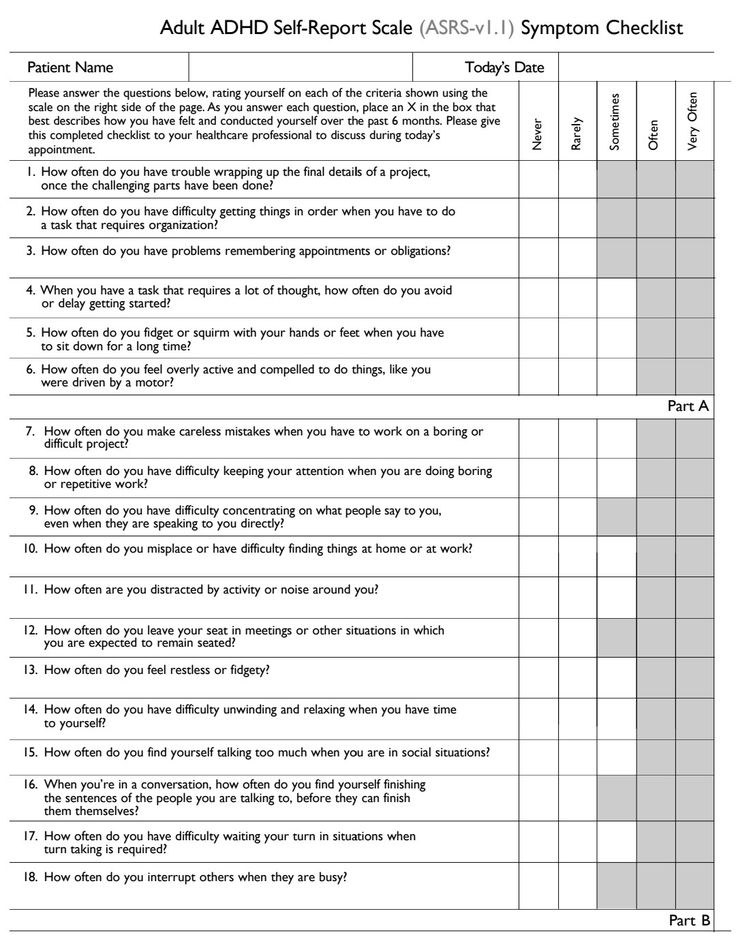
3.5 Meeting with people with Asperger's and ASD in a support group to compare appearances and discuss in person the possibility of having AS.
3.6 First person books in Russian:
- Stephen Shore "Behind the Wall"
- John Elder Robison "Look me in the eyes!"
- Temple Grandin "Opening the Doors of Hope"
- Rudy Simon "Aspie Girls"
- Mark Segar "Coping: A Survival Guide for People with Asperger's Syndrome"
- Robin Steward "Independence and Security: A Guide for Women with Autism Spectrum Disorders."
3.7 Private consultation with a psychologist, psychotherapist, psychiatrist (not recommended without prior feedback from other people with AS). It is desirable that specialists use the ADOS method (module 4 for adults with fluent speech and intact intelligence) for diagnosis.
4. Living with Asperger's Syndrome
4.1 Organize your life according to your strengths and weaknesses: keeping a schedule, looking for a job with minimal social activity, communicating in an appropriate way (letters instead of phone).
4.2 Specialist sessions if needed for cognitive behavioral therapy or treatment for depression, anxiety.
4.3 Visiting a support group for people with Asperger's to discuss problems and share experiences.
4.4 Familiarization of family, friends, colleagues (if possible) with the symptoms of Asperger's syndrome.
self-diagnosis | Autistic City
tags:
self diagnosis
Hello, dear visitors of our site!
Since 2010, our Asperger's and Autism Support Project has been the result of the work of volunteers interested in spreading awareness about autism spectrum disorders. Translations, logo, personal stories of Russian-speaking authors, technical support, creation of online tests for self-diagnosis - all this is done by autistic people.
It so happened that in Russia there is no diagnosis of autism in adults. Therefore, people are forced to resort to self-diagnosis. In order to make this process accessible to them, we:
- wrote online tests,
- translated the diagnostic criteria from the International Classification of Diseases version 10 and the Diagnostic and Statistical Manual of Mental Disorders IV and 5 versions,
- created a self-diagnosis manual,
- formed dictionaries of terms and concepts.

We would like to know your stories of self-diagnosis and how the materials on our site have helped you with this. If you have a desire to share your story of self-diagnosis on our website, which may help other people, write to us at [email protected], and we will publish your story.
You can read the sent stories in the section "Stories about self-diagnosis".
tags:
diagnostics,
self-advocacy,
self-diagnosis
The most important thing, I think, is that I know firsthand what a closed psychiatric institution is. Therefore, like no one else, I understand and share the main fear of autistic parents and the main problem around which all the activities of the Centers are directed - autistic people and other people with developmental disabilities after the death of their parents are forced to serve a life sentence in psychiatric boarding schools. People are behind bars not because they did something, but because they were born sick!
And unfortunately such a fate can overtake me. Autism is not easy. A "light" autist can very quickly turn into a severe one if left alone within four walls and without help.
Autism is not easy. A "light" autist can very quickly turn into a severe one if left alone within four walls and without help.
tags:
diagnostics,
self-diagnosis,
adult diagnosis
My name is Yuliana, I am 22 years old. I learned that I was on the spectrum at the age of 19. This path was too tortuous. However, realizing I'm autistic is the best thing that's happened to me in my entire life.
tags:
personal experience,
self-diagnosis
I also read more about the features of female autism, and now I can’t get it all out of my head, because it ... explains everything. I feel like I've found a long-lost piece of a puzzle. And how much easier it became for me!
tags:
self-diagnosis
My name is Arkady, I am 30 years old and my path of self-diagnosis was long and difficult.
In addition to being autistic, I also suffer from bipolar disorder. My story may be a little unusual, but I know it's not the only one and that it could repeat itself.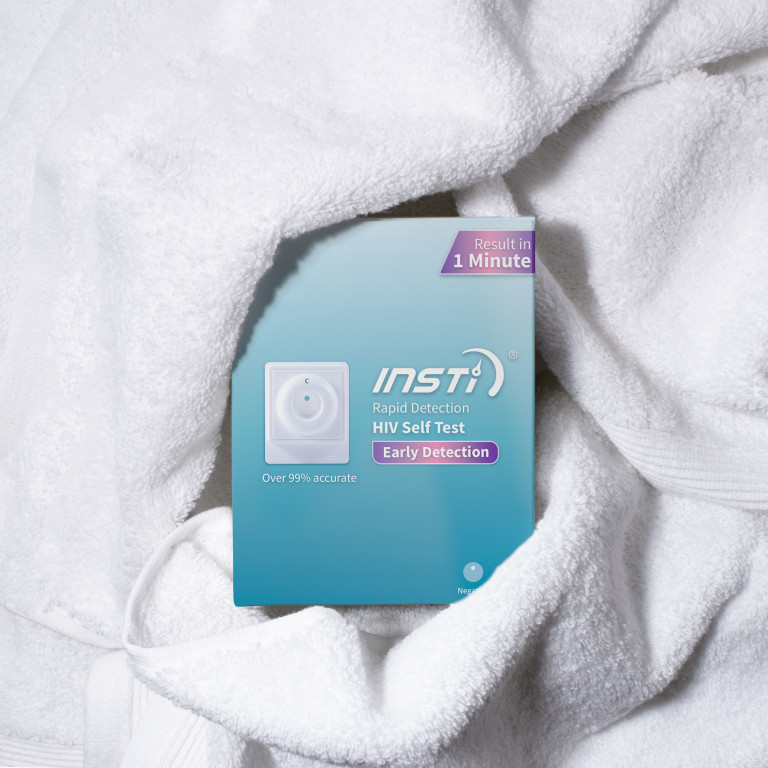 I want to talk about my experience, I hope that my story will help prevent similar events in the lives of other people.
I want to talk about my experience, I hope that my story will help prevent similar events in the lives of other people.
tags:
self-diagnosis
A completely spontaneous desire to learn more about autism and autism spectrum disorders in general led me to aspergers.ru. It turned out to be completely unexpected that the materials read on this site and the self-diagnosis tests passed made me look at myself as a person who may be somewhat autistic. But it was this fresh look at my life that helped me accept myself, helped me stop thinking that I was a terrible person who, perhaps, should never have appeared in this world, no matter how terrible it may sound.
tags:
diagnostics,
self-diagnosis
You have never been interested in talking about anything, you prefer to spend your time not communicating with people, but at the computer. Does this mean you have Asperger's Syndrome? Although there is no longer a diagnosis by that name since the last revision of the Diagnostic and Statistical Manual of Mental Disorders, you as an adult may well be diagnosed with a mild (high-functioning) form of autism spectrum disorder (or a similar or related disorder).
tags:
self-diagnosis
I decided to write my own history of self-diagnosis because the site says that it would please the creators of the site, and I would like you to know that it is very cool that there is such detailed information on the syndrome Asperger's. Thanks for this. It is much better to understand what is with you than not.
I am 25 and a high functioning autist.
All my life I didn't understand people. Mom always said: be talkative, like your girlfriend (I went with her, because we lived in the same yard, and she is very, very talkative, I could think about anything and just nod sometimes, which is convenient). But I didn’t understand and still don’t understand what’s the point of talking about the things they talk about, it’s boring and absolutely uninformative!
tags:
self-diagnosis
My name is Julia, I am 27 years old. I am writing this in order to enrich the experience of the group members and those who also find it difficult to come to terms with themselves.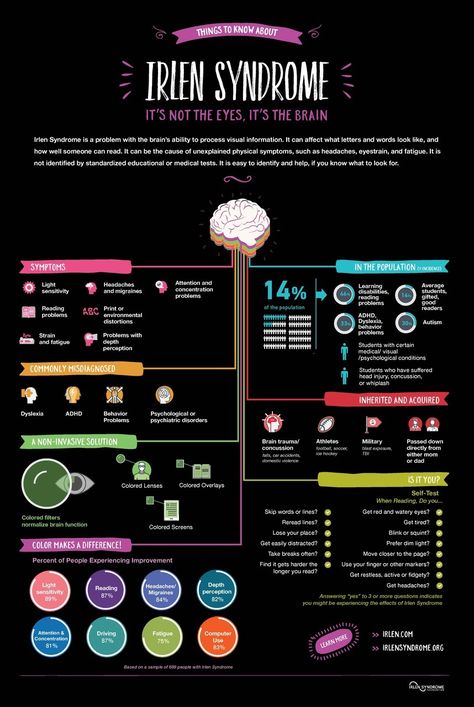 I have a higher defectology education, I work in my specialty, including in my practice I encountered children with ASD.
I have a higher defectology education, I work in my specialty, including in my practice I encountered children with ASD.
I have never thought about my problem in such a way, and this shock is even stronger for me today. The background of my self-diagnosis is as follows: I led and observed a girl with ASD combined with intellectual impairment, and in order to help the child more effectively, I began to study in depth the available literature on this topic, attend courses, seminars that would help me optimize work with her.
tags:
self-diagnosis
How did I understand my diagnosis of AS?
Online tests on the site asperger.ru helped me with this.
EQ = 34 SQ = 52 AQ = 42 Aspi results:: 134/200 neurotypical (non-autistic) results:: 77/200.
What motivated me to take these tests? I was watching a movie once and there was a mention of autism. The person about whom this was said seemed to me quite normal, somewhat similar to me.